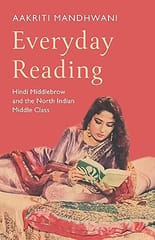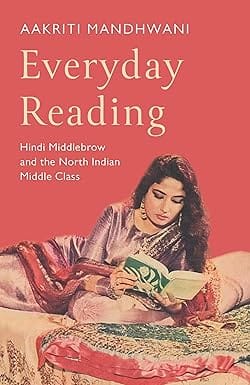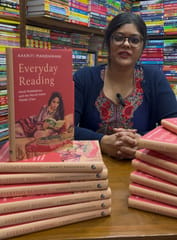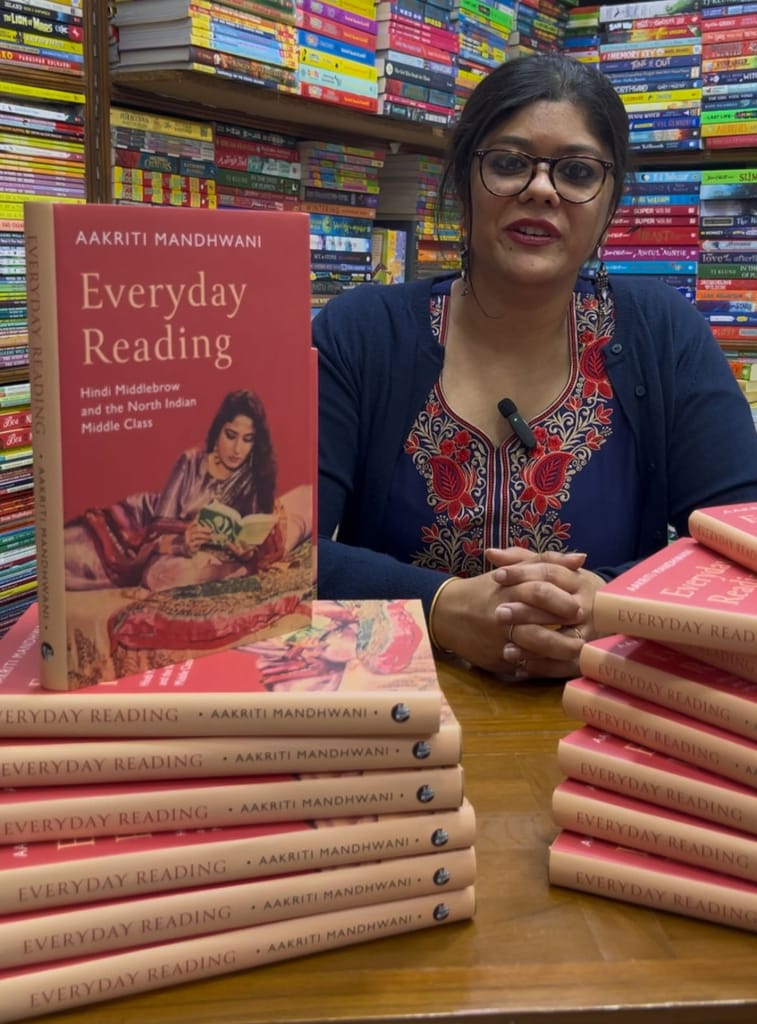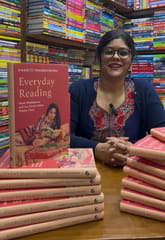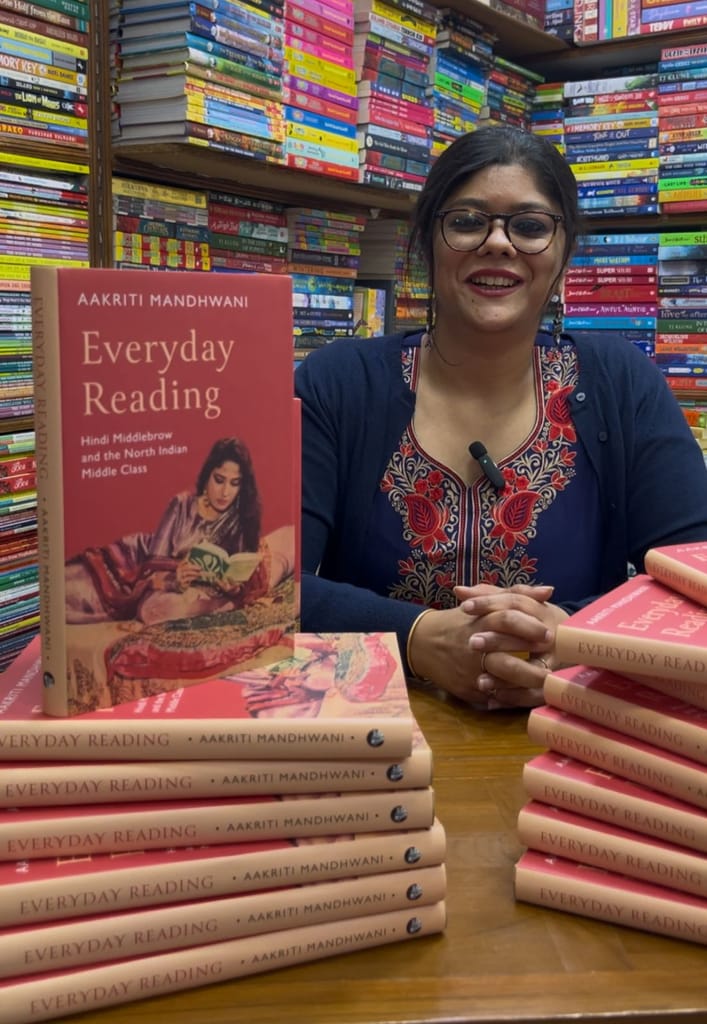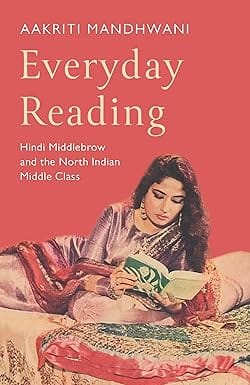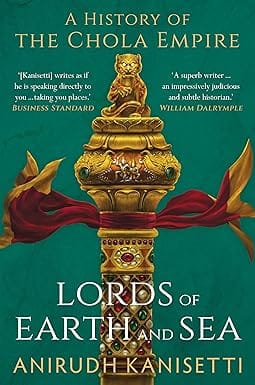- Contemporary Fiction
- Contemporary Fiction
- Children
- Children
- Comics & Graphic Novels
- Comics & Graphic Novels
- Non-Fiction
- Non-Fiction
- Fiction
- Fiction
During the two difficult decades immediately following Independence, a new, commercially successful print culture in Hindi emerged that articulated alternatives to dominant national narratives. Through what Aakriti Mandhwani defines as middlebrow magazines—like Delhi Press’s Sarita—and the first paperbacks in Hindi—Hind Pocket Books—North Indian middle classes cultivated new reading practices that allowed them to reimagine what it meant to be a citizen. Rather than focusing on individual sacrifices and contributions to national growth, this new print culture promoted personal pleasure and other narratives that enabled readers to carve roles outside of official prescriptions of nationalism, austerity and religion.
But the story is as much about the publishers as the readerships. Sarita’s challenge to institutional Hindi could not have happened without the multilingual editor-publisher Vishwa Nath of the Delhi Press, ‘a veritable magazine activist’, as the author puts it. The ‘paperback revolution’ of Hind Pocket Books, with its unprecedented print runs, is a legacy of Dina Nath Malhotra. And the phenomenal reach of Dharmyug, leading even that of celebrated English-language publications of the Times Group, owed much to writer Dharmvir Bharti’s move from Allahabad to Bombay.
Utilizing a wealth of previously unexamined publications, Everyday Reading pays careful attention not only to key aspects of production in commercial Hindi publishing but ordinary reading practices as well—particularly those of women. Insightful and entertaining, it is a significant addition to scholarship on print culture in independent India.
About the Author
Everyday Reading Hindi Middlebrow And The North Indian Middle Class
SIZE GUIDE
- ISBN: 9789354479519
- Author: Aakriti Mandhwani
- Publisher: Speaking Tiger
- Pages: 242
- Format: Hardback
- Edition: Signed Book
Book Description
During the two difficult decades immediately following Independence, a new, commercially successful print culture in Hindi emerged that articulated alternatives to dominant national narratives. Through what Aakriti Mandhwani defines as middlebrow magazines—like Delhi Press’s Sarita—and the first paperbacks in Hindi—Hind Pocket Books—North Indian middle classes cultivated new reading practices that allowed them to reimagine what it meant to be a citizen. Rather than focusing on individual sacrifices and contributions to national growth, this new print culture promoted personal pleasure and other narratives that enabled readers to carve roles outside of official prescriptions of nationalism, austerity and religion.
But the story is as much about the publishers as the readerships. Sarita’s challenge to institutional Hindi could not have happened without the multilingual editor-publisher Vishwa Nath of the Delhi Press, ‘a veritable magazine activist’, as the author puts it. The ‘paperback revolution’ of Hind Pocket Books, with its unprecedented print runs, is a legacy of Dina Nath Malhotra. And the phenomenal reach of Dharmyug, leading even that of celebrated English-language publications of the Times Group, owed much to writer Dharmvir Bharti’s move from Allahabad to Bombay.
Utilizing a wealth of previously unexamined publications, Everyday Reading pays careful attention not only to key aspects of production in commercial Hindi publishing but ordinary reading practices as well—particularly those of women. Insightful and entertaining, it is a significant addition to scholarship on print culture in independent India.
About the Author
User reviews
NEWSLETTER
Subscribe to get Email Updates!
Thanks for subscribing.
Your response has been recorded.

India's Iconic & Independent Book Store offering a vast selection of books across a variety of genres Since 1978.
"We Believe In The Power of Books" Our mission is to make books accessible to everyone, and to cultivate a culture of reading and learning. We strive to provide a wide range of books, from classic literature, sci-fi and fantasy, to graphic novels, biographies and self-help books, so that everyone can find something to read.
Whether you’re looking for your next great read, a gift for someone special, or just browsing, Midland is here to make your book-buying experience easy and enjoyable.
We are shipping pan India and across the world.
For Bulk Order / Corporate Gifting
 +91 9818282497 |
+91 9818282497 |  [email protected]
[email protected]
Click To Know More
INFORMATION
ACCOUNT
QUICK LINKS
ADDRESS
Shop No.20, Aurobindo Palace Market, Near Church, New Delhi

